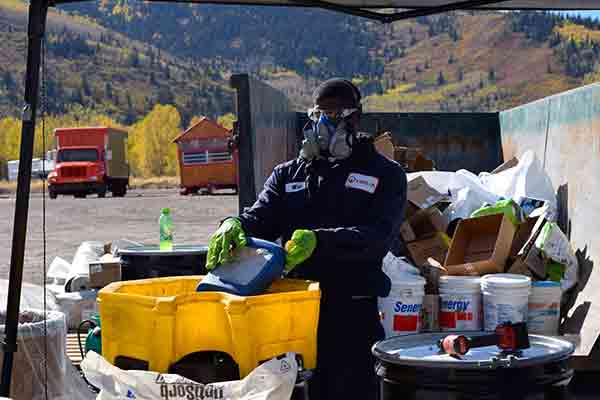The Blog
Chemicals and Hazardous Waste
April 17, 2024

Water quality should be a focus as much as water quantity in Utah and beyond. As we slowly plasticize our world, we need to have more concern about the chemicals that surround us. How can we better select our food, cleaners, body products, house décor, and clothing? Our society is immersed in chemicals; most of us carry microplastics in our blood.
One organization that enhances awareness around chemicals is The Environmental Working Group (EWG at ewg.org). This reputable organization researches the safety and efficacy of chemicals in our food and health products. EWG provides guides to healthy foods, body products, and cleaners, in addition to specific information on pesticides, bees, cancer, and more, are superb. Simply type in your product and see how it ranks!
- SUNSCREEN: Most conventional sunscreens have several chemicals of concern with Oxybenzone, a hormone disruptor, being the primary one. Know your sunscreen.
- CLEANING MATERIALS: Comet, tub and tile cleaner, 409… the list goes on. Nix them all for vinegar and baking soda; research natural recipes online. What about Drano? Use a snake for the toilet and special device found at local hardware stores for smaller drains.
- FOOD: EWG’s “Dirty Dozen” list ranks produce with the highest quantity of pesticides to the lowest. Not everybody can afford to buy everything organic. For example, strawberries and spinach should be organic, but avocadoes and onions are not as important. Learn the list.
When toxic materials like mercury, lead, and pesticides end up in the landfill they leach into the ground, our water supply and possibly into your drinking water. Hazardous Waste includes items like paints, solvents, chemicals, fertilizers, oil, herbicides and more. To protect our water and local environment, it’s very important that these items are properly disposed of. Do not pour hazardous items down the drain or into the toilet, and remember if you don’t want to drink it.. don’t dump it! Click here to learn more about proper disposal of Household Hazardous Waste.
Intrinsically, think about what you’d like to be in your drinking water. Can you eliminate chemical-laden products from your household? If not, then at least dispose of them properly, which does not mean in the trash, sink, or toilet. When household hazardous wastes, such as pesticides or paints, are disposed of in the landfill, they can leach into our precious ground water.
Protect our water system by thinking before you buy and before you toss. Together, we can sustain our water system for generations to come.
By Mary Closser